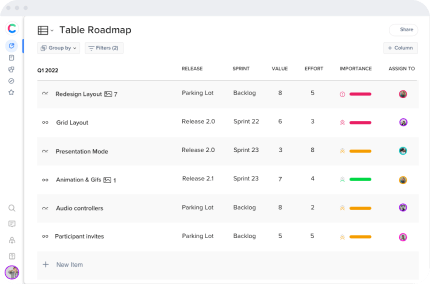What is a differentiated product?
Definition Of A Differentiated Product
A differentiated product has many qualities to similar products but has a distinguishing feature or point of uniqueness.
Automobiles are perhaps the most well-known examples of a product that stands out from the crowd. Personal automobiles are primarily the same at their core:
● They’re designed to help people with local mobility.
● They run on a restricted number of fuel options.
● They follow a simple engineering template.
Despite these similarities, when it comes to purchasing a vehicle, people are not only picky but also proud of their decisions. As a result of passionate debates about which automobiles are the best, intense consumer devotion, and several car manufacturers, people’s identities have become linked to numerous car brands.
All of these achievements were made feasible by employing differentiated product marketing strategies. As a result, automobile manufacturers worldwide can sell nearly identical products.
What Makes A Differentiated Product
Product differentiation refers to an item’s capacity to remain competitive compared to comparable rival products. Automobiles, smartphones, laptops, shoes, and, perhaps most importantly, bottled water are just a few examples of unusual things that you may find at stores.
Companies can also differentiate their products based on how much they cost. Cotton swabs, cell phone chargers, pencils, paper, and pet collars are forbidden goods. Most of us buy these items on a semi-regular basis, but aside from the price and apparent level of quality, we are unlikely to pay any thought to which of these products we are buying.
We can breakdown product differentiation further into two categories:
● Price Differentiation: Price is the only thing that distinguishes products on the market. This creates a price hierarchy for a specific product, with lower costs preceding higher expenses.
● Non-Price Differentiation: In this scenario, products are distinguished by their form, shape, feature, function, color, personalization, durability, quality, and services, among other factors.
Some Advantages Of Product Differentiation Are:
● Monetary Benefits: Product differentiation is beneficial to a company’s bottom line. It is a powerful incentive for customers to choose their product over all the other alternatives available.
● Achieve a higher price point: Furthermore, product differentiation allows a company to operate at a higher price range because of the added value or feature introduced in a product.
● Increases brand loyalty: Another benefit of product differentiation is that it frequently brings brand loyalty into play. When a corporation effectively differentiates its products, and a few products stand out, it usually results in consumer brand loyalty.
Examples Of Differentiated Products
Bottled water is one of the most visible examples of product diversification in the industry. In actuality, except for minor differences in mineral makeup, most bottled water brands are nearly identical. Even more acidic than distilled water, alkaline water offers several effects that are at best debatably useful.
Whatever the case may be, bottled water continues to be the most popular bottled beverage in the United States. We always know at least one individual who always prefers bottled water from a particular brand. This case illustrates the power of product differentiation and how marketers can transform a non-differentiated product into a differentiated one.
Differentiation of products can be divided into numerous categories.
● On a horizontal plane, differentiation: Emotional marketing, which exaggerates the distinctions between identical items, increases customer loyalty. These items may be recognized from one another almost, regardless of price.
● Along the vertical axis, there is differentiation: Vertical differentiation, which is almost entirely determined by a product’s price. Customer loyalty is less critical, but converting leads is less complicated.
● Differentiation is a hit-or-miss proposition. You can explain this type of differentiation by combining the two types mentioned above: Many individuals mistakenly believe that mixed differentiation is just another name for horizontal differentiation.


